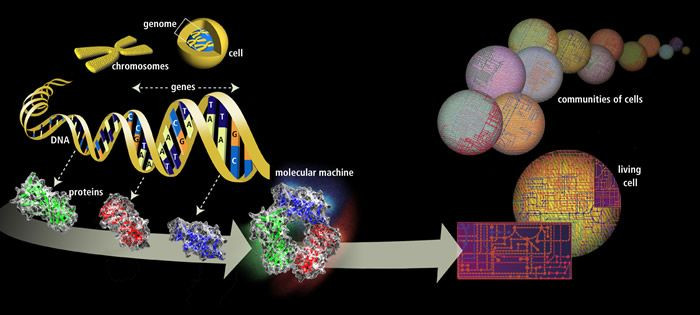Prostate Cancer Genetic Testing Newly Available, Company Offers Genetic Breast And Colon Cancer Tests

Of the expected 238,590 U.S. men diagnosed with prostate cancer this year, about half will be classified as low-risk by use of conventional measures such as Gleason Score (a form of tumor grading), the prostate-specific antigen test (PSA), and a physical exam. Nearly 90 percent of these patients will choose to undergo immediate treatment such as radical prostatectomy or radiation, despite a less than three percent chance of the disease progressing and becoming deadly.
What would these same men choose given more specific intelligence about their disease?
Much needed genetic information, as assessed by the Oncotype DX prostate cancer test, is now available to physicians and their patients from Genomic Health Inc. To develop the Oncotype DX prostate cancer test, the California-based company conducted six feasibility and development studies in collaboration with Cleveland Clinic and evaluated more than 700 patients.
The Oncotype DX prostate cancer test measures the level of expression of 17 genes across four biological pathways to predict prostate cancer aggressiveness. Test results are reported as a Genomic Prostate Score (GPS) ranging from 0 to 100; this score is assessed along with other clinical factors to clarify a man's risk prior to treatment intervention. The multigene test has been validated using the prostate needle biopsy sample taken before the prostate is removed, thereby providing the opportunity for low risk patients to avoid invasive treatments.
"The results of our study showed that the individual biological information from the Oncotype DX prostate cancer test tripled the number of patients who can more confidently consider active surveillance and avoid unnecessary treatment and its potential side effects," said Peter Carroll, M.D., MPH, principal investigator of this validation study.
Active surveillance is a treatment plan that consists of careful and consistent monitoring of the cancer in a man's prostate without removing it. Under active surveillance, patients have regular check-ups and periodic PSA blood tests, clinical exams, and potential biopsies to watch for signs of cancer progression. Currently, six possible types of treatment, often in combination, are recommended to patients based on the stage of their disease and other factors: active surveillance, surgery, radiation, hormone, chemotherapy, and biologic therapy.
By adding information that is revealed by the Oncotype DX prostate cancer test, the number of patients (in the validation study of 395 patients), who were identified as having very low risk disease and thus deemed appropriate for active surveillance, increased from around five or 10 percent to 26 percent. Specifically, more than one-third of patients originally classified as low-risk based on clinical measures alone were identified using the GPS score as very low-risk and so could more confidently choose active surveillance.
Significantly, approximately 10 percent of patients originally classified as very low or low-risk by clinical factors were identified by the GPS score as having more aggressive disease.
"The Oncotype DX prostate cancer test addresses one of the most significant issues in men's health today to help reduce the personal and economic toll of prostate cancer overtreatment," said Steven Shak, M.D., chief medical officer and executive vice president of research and development at Genomic Health.
Prostate cancer forms in tissues of the prostate, a gland in the male reproductive system found below the bladder and in front of the rectum. Usually occurring in older men, prostate cancer is expected to be the cause of death for just under 30,000 men this year alone. New types of treatment, aside from the six currently recommended, are being tested in clinical trial. Cryosurgery and high-intensity focused ultrasound are among the new, yet unavailiable options that are being reviewed.
"For men with prostate cancer, the ability to more precisely define their risk level for aggressive disease is a significant leap forward," said Howard Soule, executive vice president and chief science officer of the Prostate Cancer Foundation.
Genomics research is the study of complex sets of genes and how they work in our bodies' cells to influence tumor biology and behavior, among other functions. The Oncotype DX prostate cancer test joins another new test that came on the market; both are similar to tests used now for certain breast and colon cancers and offer a score for aggressiveness. Genomic Health has also developed genomic testing services for breast and colon cancer.
Published by Medicaldaily.com



























